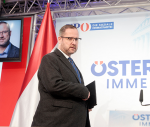You are here
Turkey’s 91st anniversary as a republic
Oct 28,2014 - Last updated at Oct 28,2014
Today the Turkish nation celebrates the 91st anniversary of the foundation of its republic.
As it coincides with the centenary anniversary of World War I, this is also a time for reflection and stocktaking, since that war and its aftermath influenced not only emergence of the Republic of Turkey, but also the main outline of the modern Middle East and, by extension, was one of the root causes of some major challenges that beset the region today.
On this occasion, the Turkish nation remembers with respect and gratitude Mustafa Kemal Atatürk, the founder of the republic, and his companions, who led and brought to a successful conclusion an epic struggle for independence.
They laid the groundwork for a democratic and secular political system that facilitated the social and economic transformation that is still under way.
During the years between World War I and the end of the Cold War, the level of Turkey’s relations with the countries in the Middle East was less than satisfactory, since they were determined mostly by the constraints of a bipolar world.
However, the end of the Cold War brought about an environment conducive to the enhancement of Turkish-Arab relations on the basis of mutually beneficial cooperation, solidarity and peaceful coexistence.
When popular movements of change and transformation were set in motion in the MENA region, four years ago, Turkey expressed support for the accommodation of the legitimate aspirations of the people for freedom, justice, dignity and opportunity.
However, for various reasons, the process of transition has stalled and was diverted from its original course, and turmoil ensued in certain cases.
This state of affairs should not preclude structural reforms. On the contrary, it shows that for the achievement of orderly change and transformation, the presence and strengthening of institutions, the exercise of consensual governance, inclusive political participation and successful economic performance are of paramount importance.
In this connection, we continue to support political and economic reform steps in Jordan.
Turkish-Jordanian relations have always been characterised by close friendship, solidarity and cooperation.
This year, several mutual high-level visits helped identify new areas of cooperation in the fields of education, trade, economic development and technical assistance.
Turkish companies are exploring ways and means of increasing direct investments in Jordan.
The Turkish Coordination and Technical Assistance Agency (T?KA) is set to open up a permanent office in Amman soon.
Turkish Minister of Foreign Affairs Mevlüt Cavusoglu’s first official visit abroad was to Jordan, in September 2014.
The figures available for the first three quarters of 2014 suggest that our overall volume of trade will continue to increase and might amount to $1 billion by the end of the year.
Developments in the region make it more urgent for the regional countries and the international community to come up with a well-defined strategy and achieve unity of purpose to address the deteriorating situation in Syria, which has become interconnected with that in Iraq.
As neighbours, Turkey and Jordan have undertaken an enormous responsibility by hosting millions of Syrian refugees for about four years.
We deeply appreciate the selfless benevolence with which the people and government of Jordan have cared for the Syrian refugees.
As for Turkey, which has already fulfilled more than its fair share in dealing with this humanitarian catastrophe, it will continue to work with the international community to address the humanitarian and security threats emanating from Syria, and to find a sustainable political solution to the crisis.
I would like to congratulate our citizens on this felicitous day for the Turkish national day and extend my appreciation to the Jordanian authorities and citizens who have expressed their sympathy on the occasion.
The writer is ambassador of Turkey to Jordan. He contributed this article to The Jordan Times.










